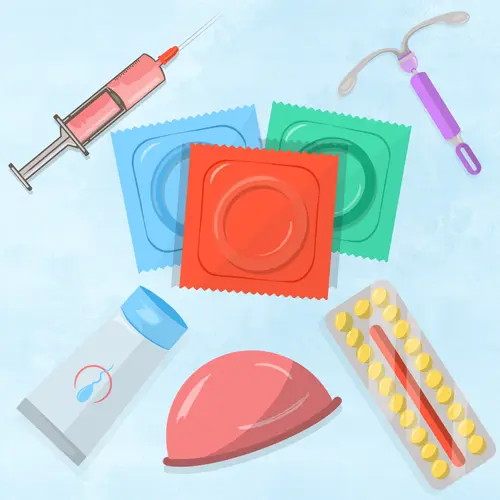Mistakes happen. It’s part of life. But when it comes to birth control, a mistake can have a big consequence: unplanned pregnancy.
Almost half of pregnancies in the U.S. are unintended, and many of them are a result of using birth control incorrectly. But with so many contraception options available, finding a simple method that works best for you is easy. Long acting reversible contraceptives like intrauterine devices (IUDs) and hormonal implants are an excellent option because they are 99% effective. Your doctor inserts it once and you don’t have to remember to do anything day to day. After 3-10 years, depending on the device, you’ll need to see a doctor to remove or replace it. Of course, if you choose another method you just need to follow the right steps to make sure the one you choose works as it should.
Keep these common mistakes in mind so you can avoid them and stay protected.
You don’t take the pill on schedule.
Whether you take a combination oral contraceptive (a pill that has both estrogen and progestin hormones) or a mini pill (with progestin only), you need to take it every day at the same time, whether or not you have sex. The timing is especially important with the mini pill. If you don’t stick to a schedule, it’s more likely the pill won’t prevent you from ovulating, which raises your odds for pregnancy.
How to avoid it: Be consistent. Set a daily alarm on your smartphone, write it down in your agenda or calendar, or download an app that reminds you to take your pill. This gets you in the habit of taking it on time -- every time -- without a second thought, which makes it most effective at preventing pregnancy.
If you do miss a dose, be sure to use a backup birth control method like a condom or diaphragm during sex, and take the pill as soon as you remember that day. If you don’t remember until the next day, take two pills to get back on schedule. But if you’ve skipped more than two pills, you should contact your doctor to find out what to do next. At this point, you may have to start a new pill pack.
You’re taking medication that can affect your birth control.
Pills, patches, and vaginal rings prevent pregnancy by adjusting hormones, but some medications or supplements you take can lower the levels of those hormones in your body. This includes some medicines for HIV, some drugs that treat epilepsy, and the antibiotic rifampin (Rimactane). Supplements like St. John’s wort can have the same effects.
How to avoid it: Talk to your doctor about all medications, vitamins, and supplements you take -- even the ones that seem harmless -- before you start a hormonal form of birth control.
Your vaginal ring falls out.
To use the ring correctly, you put it inside your vagina and wear it for 3 weeks. You remove it for that last week in the cycle, during your period, and then put in a new one. But sometimes the ring can fall out, or you might forget to change it on time.
How to avoid it: If the ring falls out, rinse it with cool water and reinsert it ASAP or within 3 hours. You’ll still be protected from pregnancy. But if the ring is out of your vagina for more than 3 hours and it’s the third week of the cycle -- i.e., not your period week -- throw it away and put in a new one right away. If you have sex during the next 7 days, use a condom or another barrier method.
You don’t check your diaphragm before you use it.
A diaphragm looks like a shallow cup. You put it inside your vagina to cover your cervix in order to block sperm from getting to your uterus. About 2 hours before sex, you should get the diaphragm ready by adding spermicide to it and putting it in, similar to inserting a tampon. Since this method calls for more prep work using your hands, the diaphragm could end up getting damaged in the process.
How to avoid it: It’s important to take care of your diaphragm when you’re not using it. This means you wash it with soap and warm water, let it air dry, and store it in a clean, dry place away from direct sunlight and heat. You also need to check it for cracks, holes, and wrinkles. You can test for leaks by filling the diaphragm cup with water. If you find any damage, talk to your doctor about getting a new one. In the meantime, use a different type of birth control.
You use expired or damaged condoms.
It’s easy to buy a box of condoms, stash it somewhere, and then forget about it. But they do have expiration dates. Also, where you store condoms is key to how well they’ll work. Keeping one in a wallet or back pocket can damage it from body heat and friction and make it easier to tear.
How to avoid it: Check the expiration dates on your condoms and replace them when they get old. Also, keep them away from heat. Store them in a cool, dry place, like a nightstand.
You use an oil-based lubricant with a condom.
Baby oil, petroleum jelly, and any oil-based lubricant will weaken the latex of the condom and cause it to tear or break. Also, condoms with spermicides made with nonoxynol-9 can cause irritation and may raise the risk of HIV infection in women who use it often.
How to avoid it: Look for a water- or silicone-based lubricant to use with your condoms.

